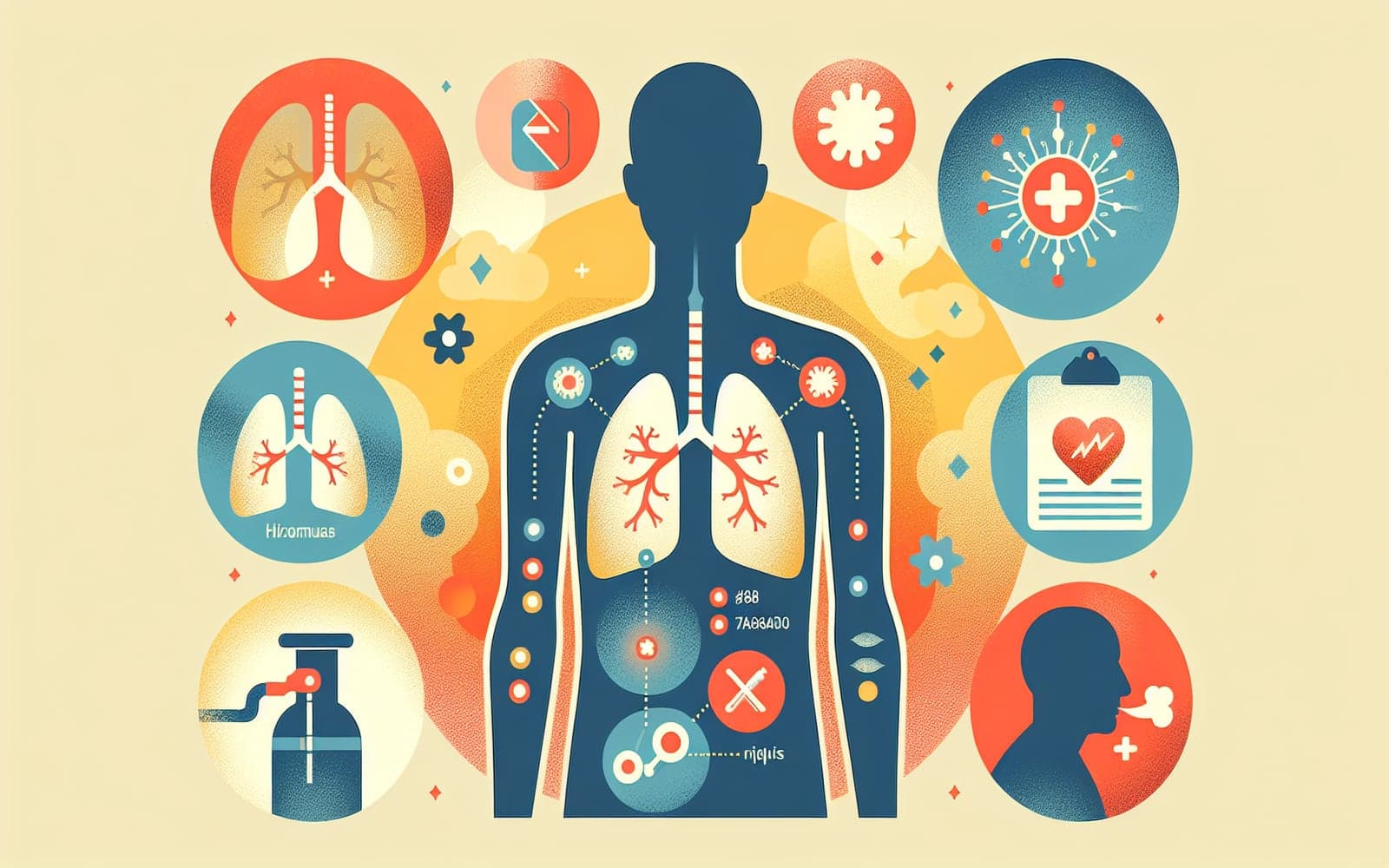Recognizing the Signs: Key Symptoms of Aspiration Pneumonia
Published: Mar 29, 2024
Recognizing the symptoms of aspiration pneumonia is crucial for early diagnosis and treatment. This condition can be serious, especially for older adults or those with underlying health issues.
Contents
Common Symptoms
The most common symptoms of aspiration pneumonia include coughing, fever, and difficulty breathing. Patients may also experience chest pain, fatigue, and confusion. In some cases, the cough may produce foul-smelling phlegm, which is a telltale sign of this condition.
Subtle Signs to Watch For
Some symptoms of aspiration pneumonia can be less obvious. These may include a sudden decrease in appetite, unexplained weight loss, or increased difficulty swallowing. In older adults, confusion or worsening of existing dementia symptoms might be the only noticeable sign.

When to Seek Medical Help
If you or someone you care for experiences persistent coughing, especially after eating or drinking, seek medical attention. Other red flags include high fever, rapid breathing, or chest pain. For those at high risk, such as stroke survivors or people with swallowing difficulties, even mild symptoms should prompt a medical evaluation.
Frequently Asked Questions
Yes, 'silent aspiration' can occur without noticeable choking.
Symptoms can develop within hours or take several days to appear.
Yes, older adults may show more subtle or atypical symptoms.
Yes, it can be confused with other types of pneumonia or respiratory infections.
Key Takeaways
Being aware of aspiration pneumonia symptoms can lead to faster diagnosis and better outcomes.
If you're concerned about any symptoms you're experiencing, don't hesitate to discuss them with Doctronic for personalized advice.Related Articles
References
DePaso WJ. Aspiration pneumonia. Clin Chest Med 1991; 12:269.
Marik PE. Aspiration pneumonitis and aspiration pneumonia. N Engl J Med 2001; 344:665.
Always discuss health information with your healthcare provider.